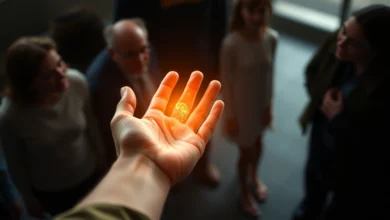The AI-Powered Information Shortcut: Convenience or Consequence?

Remember that feeling? You’re in a pub quiz, having a heated debate with friends, or simply trying to settle a nagging curiosity, and someone inevitably says, “Just Google it!” More often than not, that Google search would lead you straight to Wikipedia. For over two decades, it’s been the internet’s reliable, crowdsourced encyclopedia, a first port of call for factual information on almost anything imaginable. But it seems even this digital colossus isn’t immune to the relentless currents of online evolution. Whispers, now turning into clear pronouncements, suggest Wikipedia’s traffic is falling. And the culprits? The very forces reshaping our digital lives: AI search summaries and the captivating allure of social video.
It’s a phenomenon many of us have noticed, perhaps subconsciously. The way we seek, consume, and even stumble upon information is changing at an astonishing pace. The internet, once a vast library of interlinked pages, is rapidly transforming into something far more fragmented, personalized, and often, algorithmically curated. Wikipedia’s struggle isn’t just about its own health; it’s a potent indicator of broader shifts in how we engage with knowledge itself.
The AI-Powered Information Shortcut: Convenience or Consequence?
For years, Google’s primary directive was to lead you to the most relevant information. More often than not, that meant clicking a link. Now, with the rise of AI-powered search results and conversational AI models like ChatGPT, the game has fundamentally changed. When you ask a complex question, instead of a list of blue links, you’re increasingly presented with a synthesized, concise answer right at the top of your search page – a practice often dubbed “answer engine optimization” or featured snippets.
This is where AI search summaries enter the fray as a direct competitor to Wikipedia. Why click through to a Wikipedia article, even one as well-structured as they are, when an AI has already extracted the core facts and presented them in a digestible paragraph? Need to know the capital of Madagascar? The primary ingredients of a carbonara? The year the Berlin Wall fell? AI can give you that answer instantly, often without needing a single click outside the search engine’s interface.
For the user seeking a quick fact, this is undoubtedly convenient. It streamlines the information-gathering process, offering immediate gratification. But for a platform like Wikipedia, which relies on those clicks for visibility, donations, and ultimately, its very relevance, this poses a significant challenge. The value proposition of an AI summary is speed and directness; Wikipedia’s value is depth, context, and a commitment to verifiable sources. The question becomes: in a fast-paced world, which value wins out?
Beyond the First Click: The Loss of Context and Discovery
One of Wikipedia’s often-underappreciated strengths is its interconnectedness. You might look up “Napoleon Bonaparte” and end up reading about the Napoleonic Wars, the Battle of Waterloo, or even the history of French artillery. Each click down a rabbit hole offers richer context, different perspectives, and the joy of intellectual discovery. AI summaries, by their very nature, tend to be terminal. They provide an answer, and the journey often ends there. This efficiency, while helpful for quick lookups, can inadvertently diminish our engagement with deeper knowledge and critical thinking skills, where understanding the ‘how’ and ‘why’ is as important as the ‘what’.
The Allure of the Algorithm: Short-Form Video’s Magnetic Pull
While AI addresses the need for quick facts, social video platforms like TikTok, YouTube Shorts, and Instagram Reels have captured our attention in an entirely different way. These platforms are not just for entertainment; they’re increasingly becoming sources of information, news, and learning, especially for younger demographics.
Think about it: instead of reading a detailed article on how to fix a leaky faucet, you watch a 60-second video demonstrating the exact steps. Want to understand a complex historical event? A creator might condense it into an engaging, visually rich two-minute explainer. These platforms excel at delivering information in highly engaging, bite-sized chunks that cater to ever-diminishing attention spans. The sensory richness of video – visuals, audio, motion – often makes it feel more immediate and digestible than text, even dense, well-written text.
This shift isn’t just about how we learn, but also how we discover. Social media algorithms are designed to keep us scrolling, presenting us with content we might find interesting, even if we weren’t actively searching for it. Wikipedia, by contrast, is a destination for intentional search. You go there because you have a question. On TikTok, information finds *you*. This passive consumption model, coupled with the addictive nature of endless feeds, pulls eyeballs and time away from more traditional, text-based knowledge sources.
From Information to Experience: What Video Offers That Text Can’t
Crucially, video often delivers not just information, but an *experience*. It can convey emotion, demonstrate processes with unparalleled clarity, and build a sense of connection with the presenter. While Wikipedia aims for encyclopedic neutrality and factual accuracy, social video thrives on personality, style, and often, an anecdotal approach to knowledge sharing. This isn’t to say one is inherently better than the other, but they serve fundamentally different needs and appeal to different aspects of our cognitive processing. In a world increasingly valuing immediacy and engagement, the highly visual and interactive nature of social video presents a formidable challenge to any text-heavy platform.
What This Means for the Future of Foundational Knowledge
Wikipedia’s declining traffic isn’t an isolated incident; it’s a canary in the coal mine for the broader landscape of online information. It highlights a critical inflection point: are we, as a society, collectively moving towards a preference for immediate, summarized answers and visually-driven content over in-depth, text-based exploration? If so, what are the long-term implications for critical thinking, nuanced understanding, and the very concept of verifiable, peer-reviewed knowledge?
The challenge for platforms like Wikipedia, and indeed for all purveyors of serious, deeply researched content, is immense. It forces a reevaluation of how foundational knowledge is presented and accessed in the digital age. It’s not about declaring text obsolete, but understanding its evolving role. There will always be a need for detailed, well-referenced information, but the path to it might need to change, or its value proposition needs to be articulated more forcefully.
Ultimately, while AI summaries and social video offer incredible utility and engagement, they also carry inherent risks. AI can hallucinate or perpetuate biases, and social video often prioritizes entertainment and virality over accuracy or depth. The decline in traffic to a trusted, reference-based source like Wikipedia serves as a potent reminder that while new forms of information consumption emerge, the enduring value of curated, contextualized, and thoroughly vetted knowledge remains paramount. It’s up to us, as digital citizens, to consciously seek out and support the sources that prioritize substance over mere speed or fleeting engagement.





